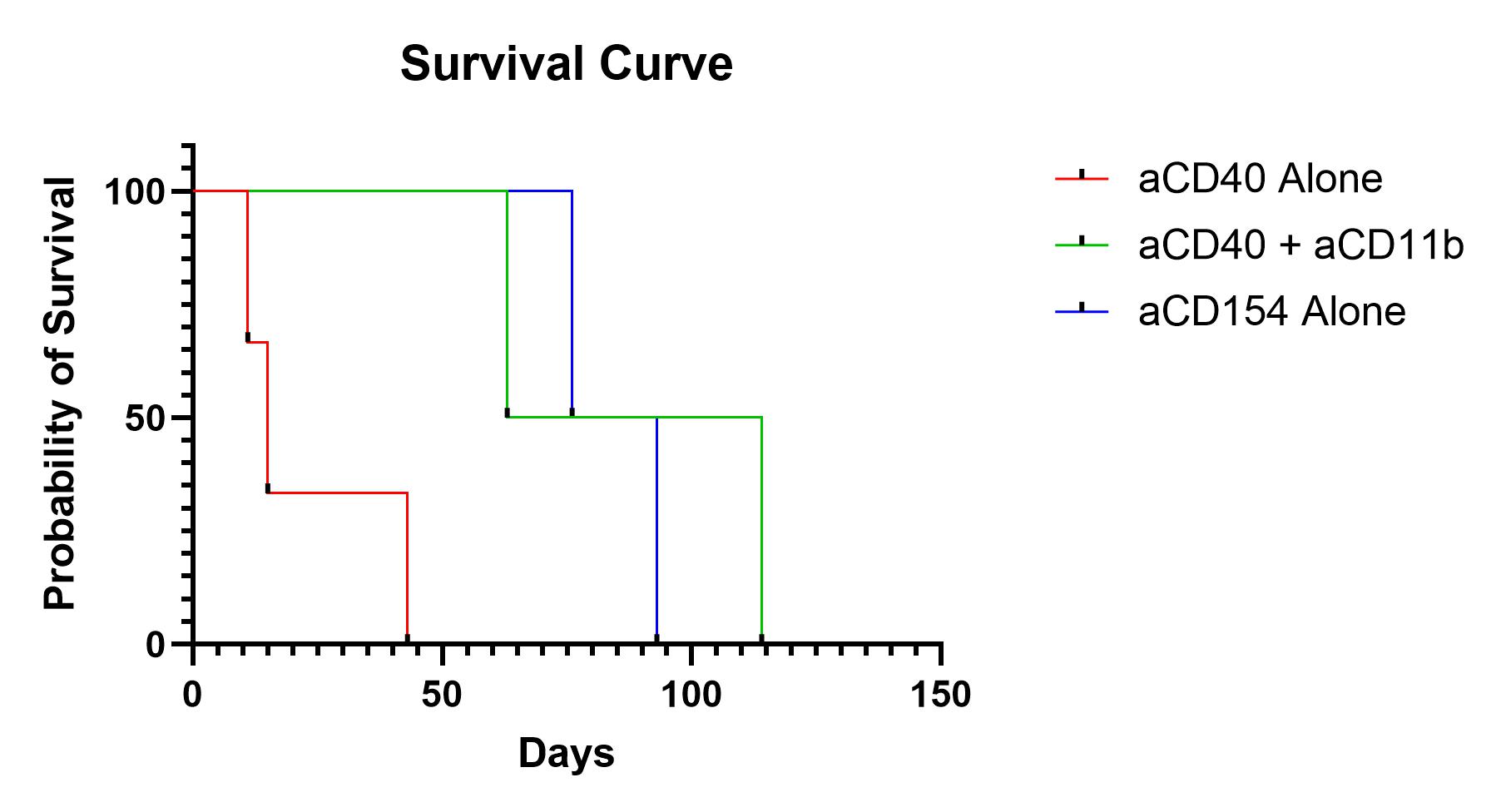Blockade of CD40 with or without CD11b versus CD154 blockade in GTKO and hCD55 transgenic pig-to-macaque kidney xenotransplantation
Bryar Hansen1, Andre Souffrant1, Katsuhiro Tomofuji1, Avery Wilson1, Amin Arnaout1, Tatsuo Kawai1.
1Center for Transplantation Sciences, Massachusetts General Hospital, Boston, MA, United States
Introduction: CD11b is a transmembrane glycoprotein that is highly expressed on innate immune cells such as neutrophils and macrophages and regulates a broad range of immune responses in xenotransplantation. We evaluated inhibition of innate responses in pig-to macaque kidney xenotransplantation by mAb107 (aCD11b), a unique non-agonizing mAb that blocks the archetypal innate immune receptor integrin CD11b/CD18 (CD11b), in combination with CD40 blockade.
Methods: Using a genetically modified pig donor (GTKO and hCD55 insertion), kidney grafts were transplanted into NHP recipients. One study arm received weekly infusions of anti-CD40 monoclonal antibody with monthly infusions of aCD11b, while another arm received aCD40 alone. These results were compared to a cohort receiving weekly infusions of aCD154 alone. Along with the standard postoperative immunosuppressive regimen, we examined how survival outcomes changed with the experimental inhibition of the CD11b pathway. Biopsy samples in all arms were collected from the xenograft 1 hour after reperfusion and at time of necropsy. Protocol biopsies were obtained every 1-3 months in recipients with stable function, and when a rise in serum creatinine was detected. FFPE sections were used for routine pathologic studies as well as transcriptomic analyses using the NanoString platform.
Results: Three cynomolgus monkey recipients that received aCD40 mAb alone rapidly lost their xenografts either due to rejection, TMA, or thrombotic graft loss at days 11, 15, and 43 respectively. Two recipients receiving aCD154 survived longer, being euthanized on days 76 and 93 due to antibody-mediated rejection and weight loss (without rejection), respectively. Two recipients receiving aCD40 plus aCD11b survived to 63 and 114 days before euthanasia due to severe proteinuria and subsequent peripheral edema, both with diagnosis of CAMR.
At 1-hour post-reperfusion biopsy, recipients receiving aCD40 alone showed no signs of rejection but did display more diffuse acute tubular injury than the cohort receiving aCD40 plus aCD11b. Recipients receiving aCD154 treatment showed no evidence of rejection.
Transcriptomic analysis of biopsies and plasma cytokine analysis are in progress to investigate how the treatment modalities influence the microenvironment in renal xenografts.

Conclusion: In renal xenotransplantation, blockade of CD40 alone was not sufficient in preventing rapid xenograft loss. With the addition of CD11b blockade, there is survival prolongation that is comparable to survival of recipients receiving aCD154, suggesting the importance of blocking CD11b in this setting.
[1] Costimulatory Blockade
[2] Immunosuppression
[3] Xenograft Survival